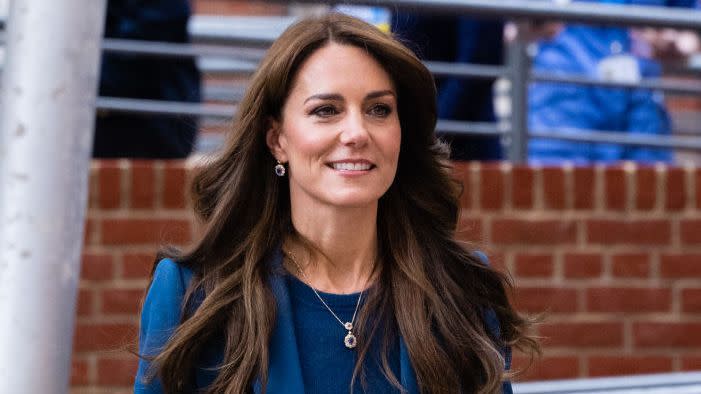When Might Kate Middleton Be Able to Return to Royal Duties?

Following weeks of intense online speculation about Kate Middleton's health, on March 22, 2024, Kensington Palace announced that the Princess of Wales had been diagnosed with cancer. Though the Palace will not be sharing the specific type of cancer that Kate has been diagnosed with—similar to how Buckingham Palace has not revealed what type of cancer King Charles has—they did state that "the Princess is now on a recovery pathway having commenced a course of preventative chemotherapy."
That term, "preventative chemotherapy," quickly attracted attention, as many attempted to determine what kind of treatment the princess was undergoing, and what it might mean for her future, as well as the timeline of her potential return to royal duties. Here's what we know:
What is "preventative chemotherapy"?
"Preventative chemotherapy" is not a commonly-used term in medicine, though the World Health Organization does utilize the term. However, the WHO's primary explanation of its use is in the treatment of tropical diseases, rather than for cancer.
So, while Kensington Palace uses "preventative chemotherapy" in their statement, as does Kate in her video, it appears they are referring to another type of treatment. While the Palace have not shared any further information on Kate's treatment, based on the context, it seems likely that the treatment they were referring to is what's commonly known as adjuvant cancer therapy.
Adjuvant cancer therapy "is treatment given after surgery, when there is no visible cancer left," Dr. Christina Annunziata, the Senior Vice President of Extramural Discovery Science at the American Cancer Society, explains to Town & Country. "The purpose of this treatment is to eliminate any microscopic cancer that remains in the body, with the goal of preventing it from growing back (relapsing) at a later time." She adds, "This is also called 'secondary prevention.'"
Depending on the cancer type, adjuvant cancer therapy can include a variety of therapies, including chemotherapy and radiation therapy.
Though the ACS and Dr. Annunziata could not comment on any specifics about an individual case, this would seem to be in line with what we know about Kate's condition up until now. In January, the Princess of Wale underwent a "planned abdominal surgery" at the London Clinic. At the time, the Palace announced, "The surgery was successful and it is expected that she will remain in hospital for ten to fourteen days, before returning home to continue her recovery." They also noted then that her condition was believed to be non-cancerous, however they later revealed that it was determined Kate did have cancer after "post-operative tests had been completed and results reviewed."
When could Kate return to royal duties?
When Kate's surgery was originally announced, it was expected that she would make her return to life as a working royal after Easter. Since then, no additional announcements have been made about when she might make a return to public life, but as the Wales family skipped Easter service with the royals, it seems unlikely that that will be in the near future.
Adjuvant cancer therapy with chemo can be, "quite variable depending on which chemotherapy is used, and for what type of cancer," says Annunziata. "One round can be anywhere from 2-6 weeks. The full course of adjuvant treatment (including all planned courses) can range from 3 months to 2 years, again depending on the regimen and the cancer type."
Consequently, the recovery time can also vary widely from individual to individual, depending on the treatment protocol and how long the treatment lasts. While typical chemotherapy side effects include fatigue, nausea, low blood count, increased risk of infection, and numbness or tingling in the extremities also known as peripheral neuropathy, Annunziata explains, "Some people have minimal side effects and recover almost immediately, while some people never fully recover from side effects like neuropathy."
Without further information from the Palace on Kate's specific condition, there's simply no way to know exactly when we might expect her round of "preventative chemotherapy" to end, or when she might be well enough to return to her usual roster of events.
You Might Also Like

 Yahoo Finance
Yahoo Finance 